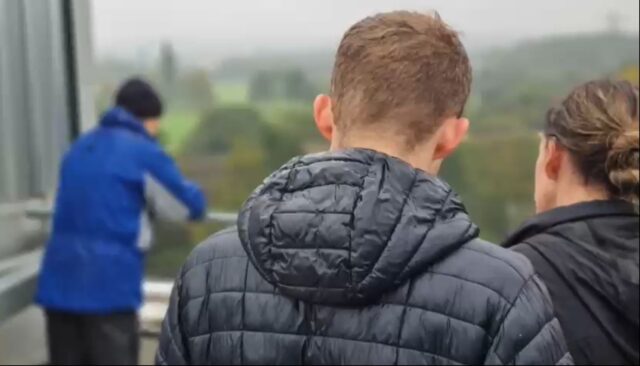‘This was the toughest but most rewarding course’
Those are the words of Police Sergeant Tanya McLeod who has successfully completed the College of Policing’s ‘Crisis and Hostage Negotiators National Course’.
It was run by Greater Manchester Police and attended by officers from all over England and Wales.
Week One of the course focused on Crisis Negotiation, where the scenarios were mainly based around people who wished to take their own life.


Training sessions were led by psychiatrists, mental health professionals and experienced police officers with some sessions being held on the roofs of high-rise buildings where specially selected and trained negotiators acted out their roles as persons who were just about to jump.
As with all other practical sessions, the students’ actions were recorded on film so that their negotiations could be assessed and used for feedback. The pressure was constant.
In Week Two, attention switched to hostage scenarios in which students worked closely with Police Support Units (PSU) and Firearms officers.
“Although we were working with PSU and Firearms teams, we learned to be independent of them. We were just there to talk to the Subject and not to make operational decisions,” said Tanya.
Some of the scenarios involved a breakdown of public order or the start of a riot and, in these situations, Tanya would sometimes need to negotiate with the rioters from behind a squad of officers holding their riot shields – or even from behind a police vehicle. All this was faithfully replicated in the training course.
“We were constantly being confronted with role players who were all acting in an angry, aggressive and hostile manner,” said Tanya.
“And, being a female officer, I was singled out for extremely sexist and abusive language. And it isn’t easy to try to talk to the leader of a riot when you are negotiating from behind a dozen heavily- armed police officers.”
All this was done to see exactly how an officer would cope under the greatest of pressure and it was particularly realistic as it was usually carried out in Manchester’s heavy rain.
Tanya’s final exercise focused on a domestic situation in which she had to negotiate with a man who had a firearm and was holding his wife and child as hostages.
“In this situation, it was all too easy to focus just on the ‘bad guy’ – we had to keep reminding ourselves that, behind the hostage-taker, there was a woman and her child who were probably scared out of their wits. Eventually, the Subject finally agreed to release them and we thought the exercise was all over but then he suddenly threatened to kill himself – and we had to start to negotiate all over again.”
The course was extremely intensive. It lasted for two weeks and the students had just one day off.
“But all our working days were very long,” said Tanya.
“Every day, we started at 8am and finished at about 9.30pm. We were assessed daily and, if anyone wasn’t up to scratch, they were immediately asked to leave the course. This happened to one student in Week One and another one in Week Two so we started with 18 students and finished with 16. As you can imagine, by the time we had finished the course, those who successfully passed had become a very closely bonded team.”
“I have rarely worked so hard in such a sustained way.”
“The staff were brilliant. Everyone who played a role in the scenarios was a trained negotiator themselves – they had been specially selected and trained to play their role on the course. As a result, we started to ‘live’ the scenarios as if they were really happening. I became totally immersed in the course and I couldn’t stop thinking about the people I was negotiating with.


“Everything was so amazingly lifelike and realistic so it really was the most worthwhile and rewarding course I have ever attended.”
This feature was prepared by the Royal Gibraltar Police as part of a campaign to highlight the work of its officers.









